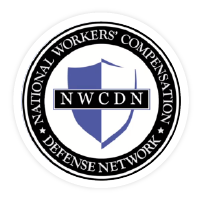Toll Free 866.995.8663
Facsimile 877.284.4034
info@lsfslaw.com


Toll Free 866.995.8663
Facsimile 877.284.4034
info@lsfslaw.com



As a Georgia-based law firm that represents employers and insurance companies in worker’s compensation defense, Levy, Sibley, Foreman & Speir, LLC has particular experience defending against claims that are unique to our geographic location. This includes benefits claims under the Longshore and Harbor Workers Compensation Act (LHWCA).
The LHWCA is a federal worker’s compensation statute that provides benefits to certain maritime workers and through its extension programs, civilian employees of defense contractors on military bases overseas and others. The LHWCA is to be distinguished from the Jones Act, which provides is a federal law furnishing benefits (maintenance and cure) to masters/captains, crew members, and other seamen who spend the majority of their time aboard vessels at sea. Where the Jones Act applies, workers’ compensation programs such as the LHWCA generally do not apply.
The LHWCA benefits tend to be more favorable than those available under ordinary state workers’ compensation statutes. As a result, employers with qualifying employees often find themselves facing claims under the LHWCA. In order to qualify for LHWCA benefits, an employee must satisfy two tests: the “status” test and the “situs” test. In general terms, these require the employee to be engaged in “maritime” activities either aboard a vessel or relatively near navigable water. However, the statute’s coverage is a bit broader than it may initially seem – providing benefits, for example, even to some truck drivers who deliver shipments to and from the docks.
Nevertheless, certain categories of employees are clearly excluded from the scope of the LHWCA. These include:
Of course, employees who suffer job-related injuries but are ineligible to receive benefits under the LHWCA may nevertheless be entitled to compensation under other state or federal laws.
It is important to note that Georgia and most neighboring states (excluding Florida) allow for concurrent jurisdiction, meaning that an employee may pursue both a claim under the LHWCA and also a claim under the applicable State Act. While the employer/insurer are entitled to a credit or offset for benefits previously paid, it is important to deal with all the pending claims and exposures when defending and/or settling claims involving workplace injuries.
Our attorneys represent employers and insurance companies in LHWCA disputes and litigation. We do not represent employees in pursuing LHWCA claims. Our attorneys have more than 75 years of combined experience serving clients in LHWCA and other worker’s compensation matters.
The first step in evaluating an LHWCA claim for litigation or settlement is to determine whether the claimant meets the “status” and “situs” tests discussed above. If not, their claim is improper and should be dismissed (although, as noted above, they may still be entitled to other statutory benefits).
When an employee qualifies under the LHWCA, we focus our representation on defending the employer or insurer against statutory liability. There are numerous full and partial defenses to worker’s compensation claims under the LHWCA. In each case, we work closely with our client to understand what happened, identify the responsible parties, and then develop and execute a strategy designed to minimize our client’s exposure to liability under the law. Regardless of the situation, our goal is always the same: to maintain open lines of communication with our clients and use our knowledge and experience to meet their legal needs.
If your company is facing an LHWCA benefits claim in Georgia or Alabama, please contact us today. Levy, Sibley, Foreman & Speir, LLC assists employers and insurers of all sizes in defending against in worker’s compensation claims.